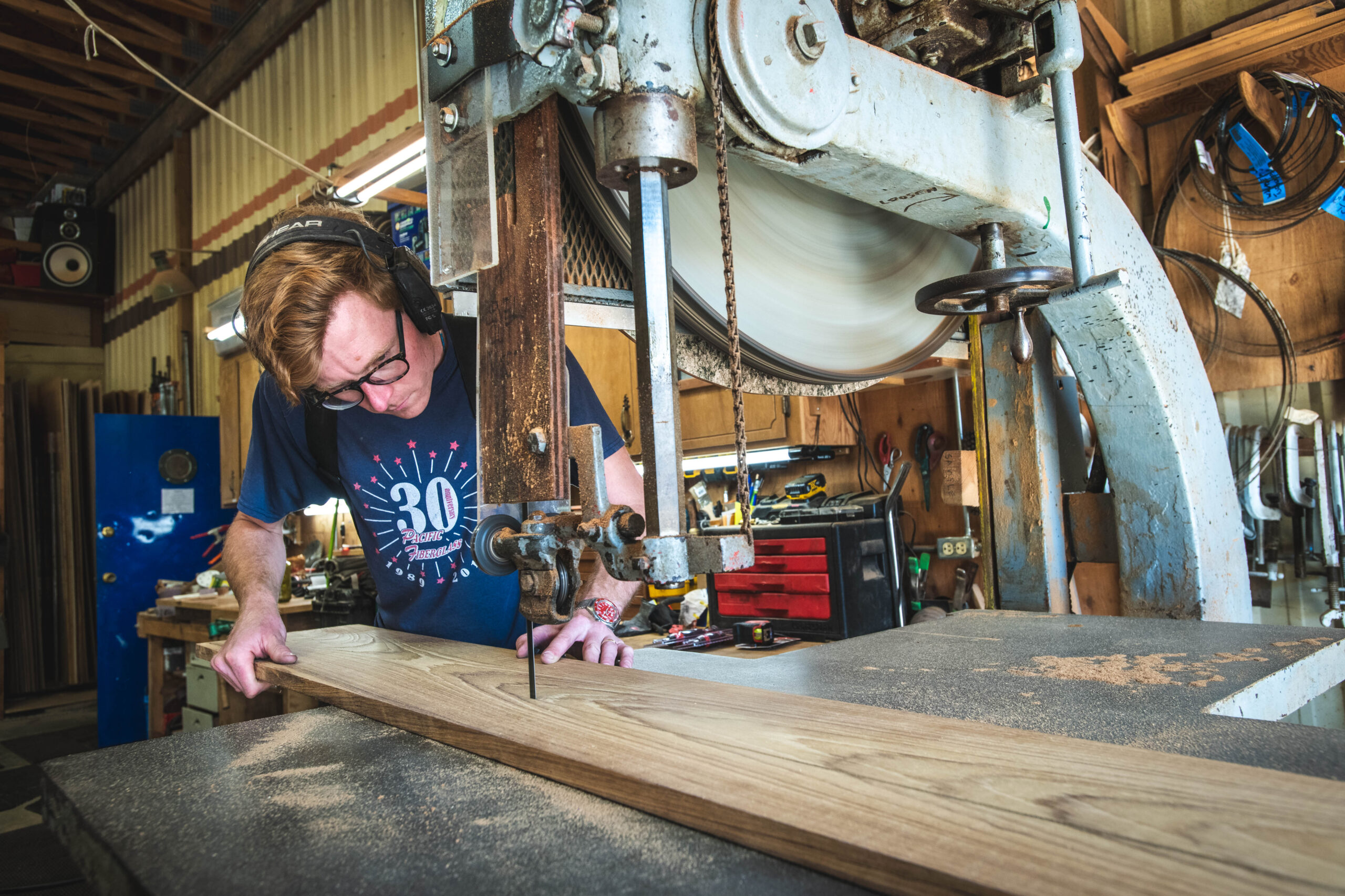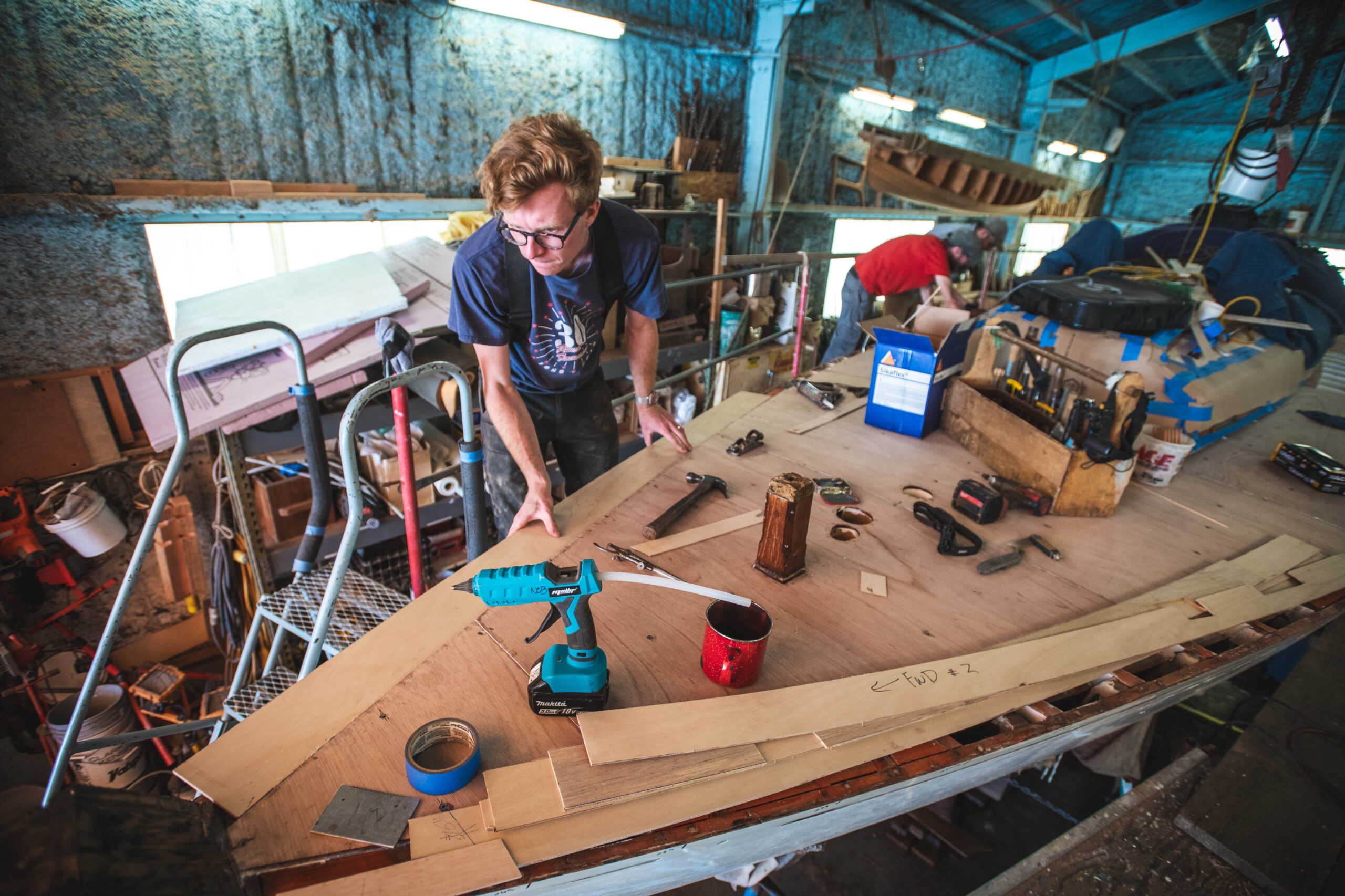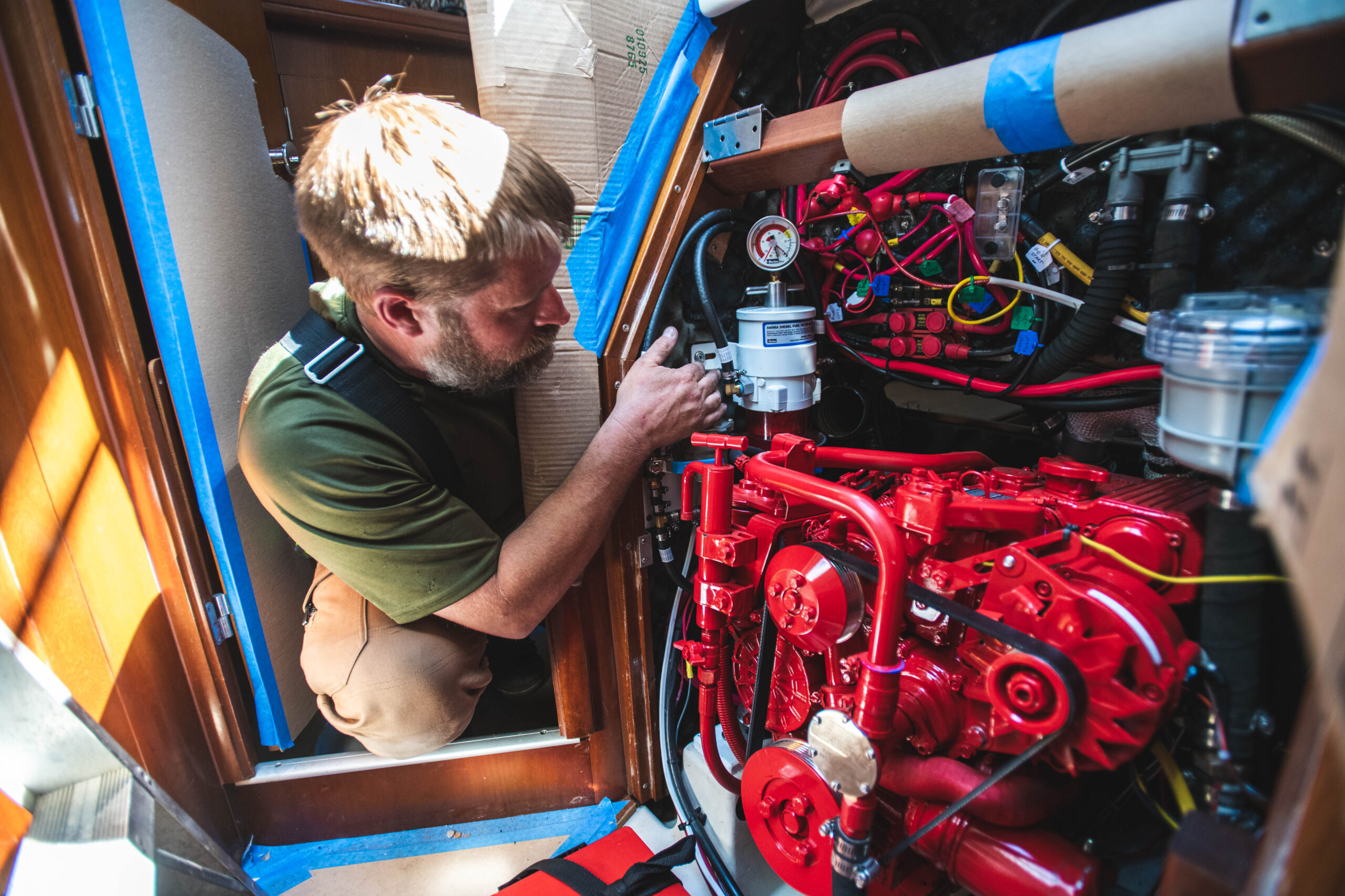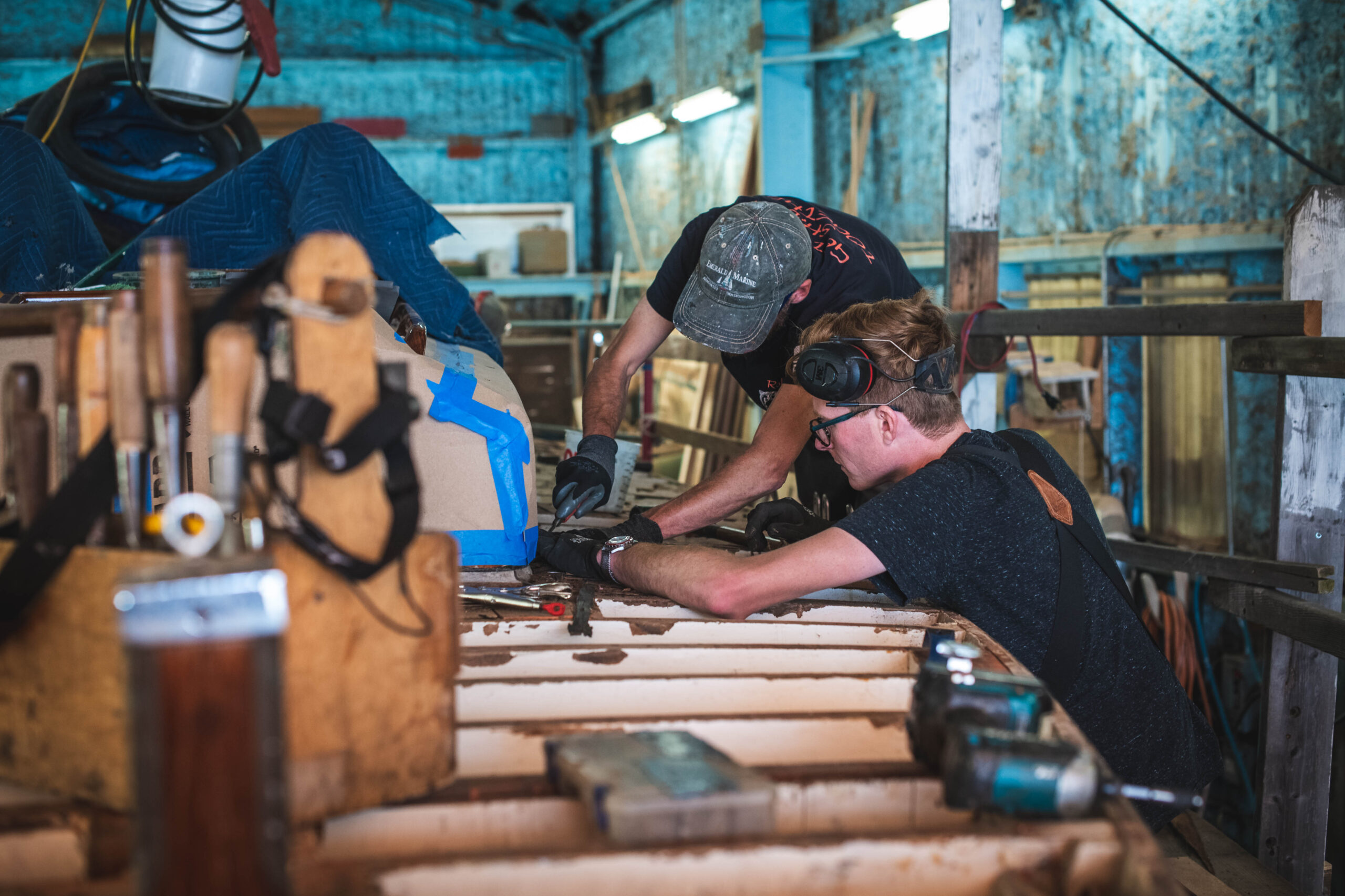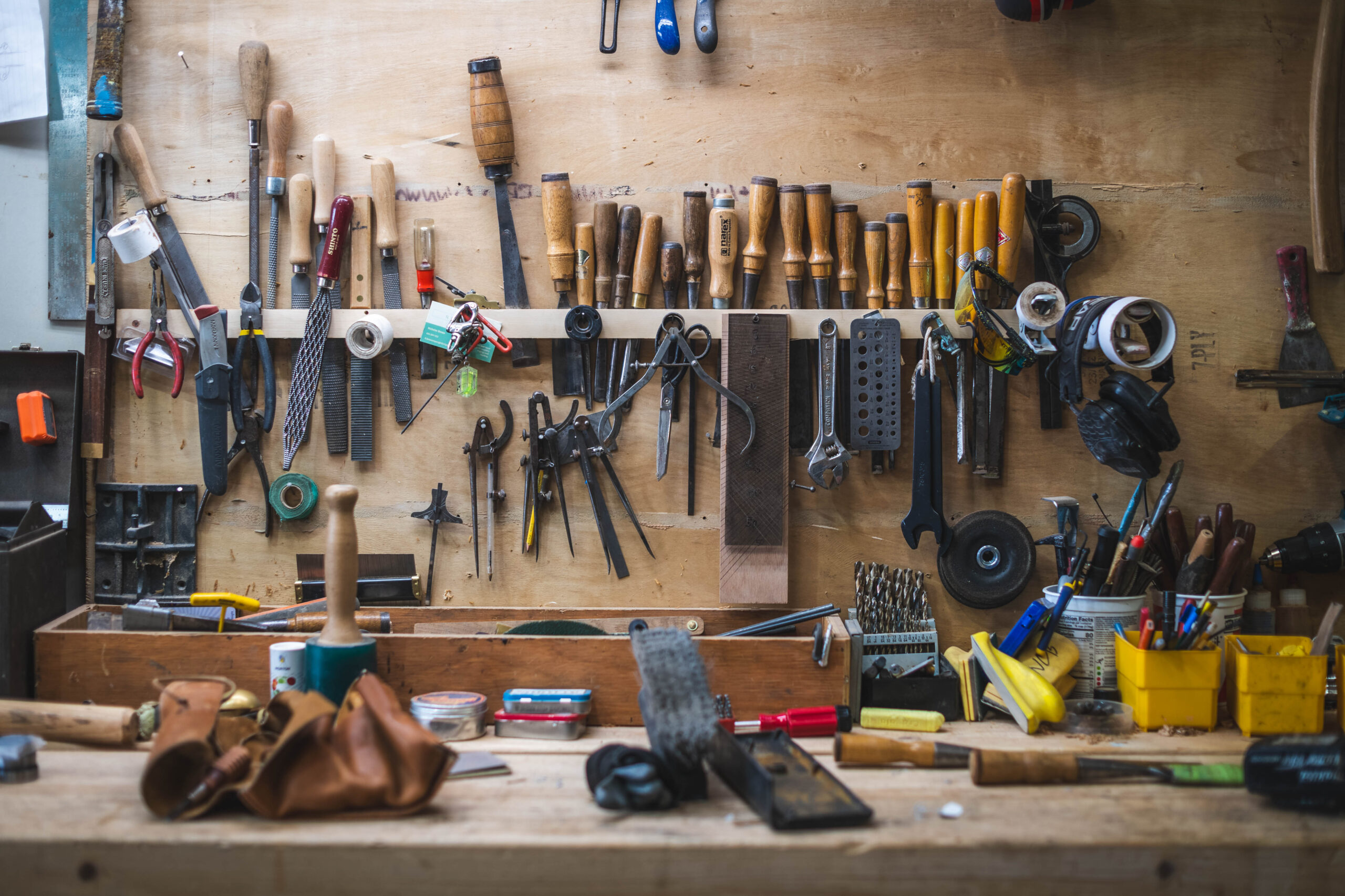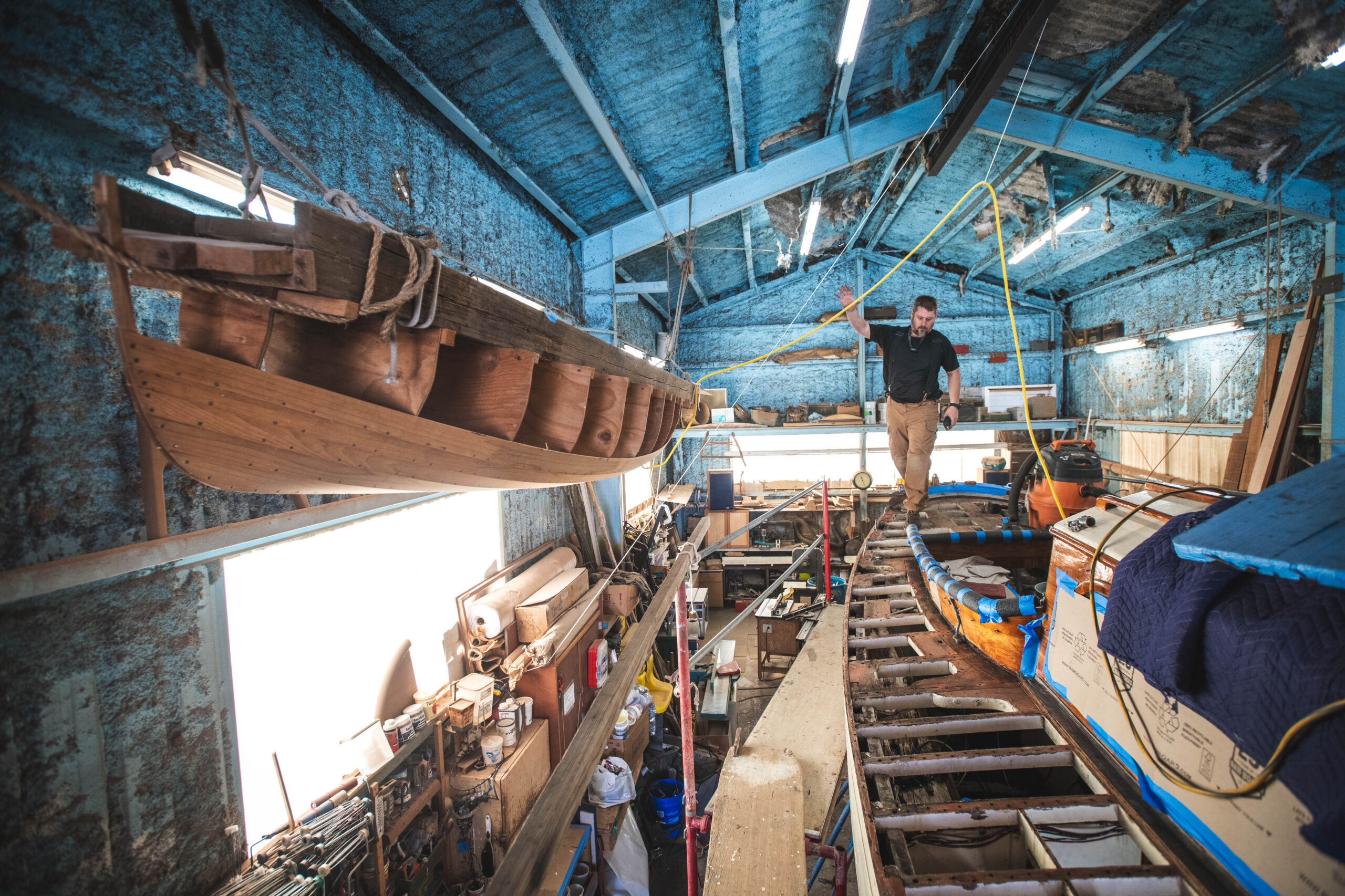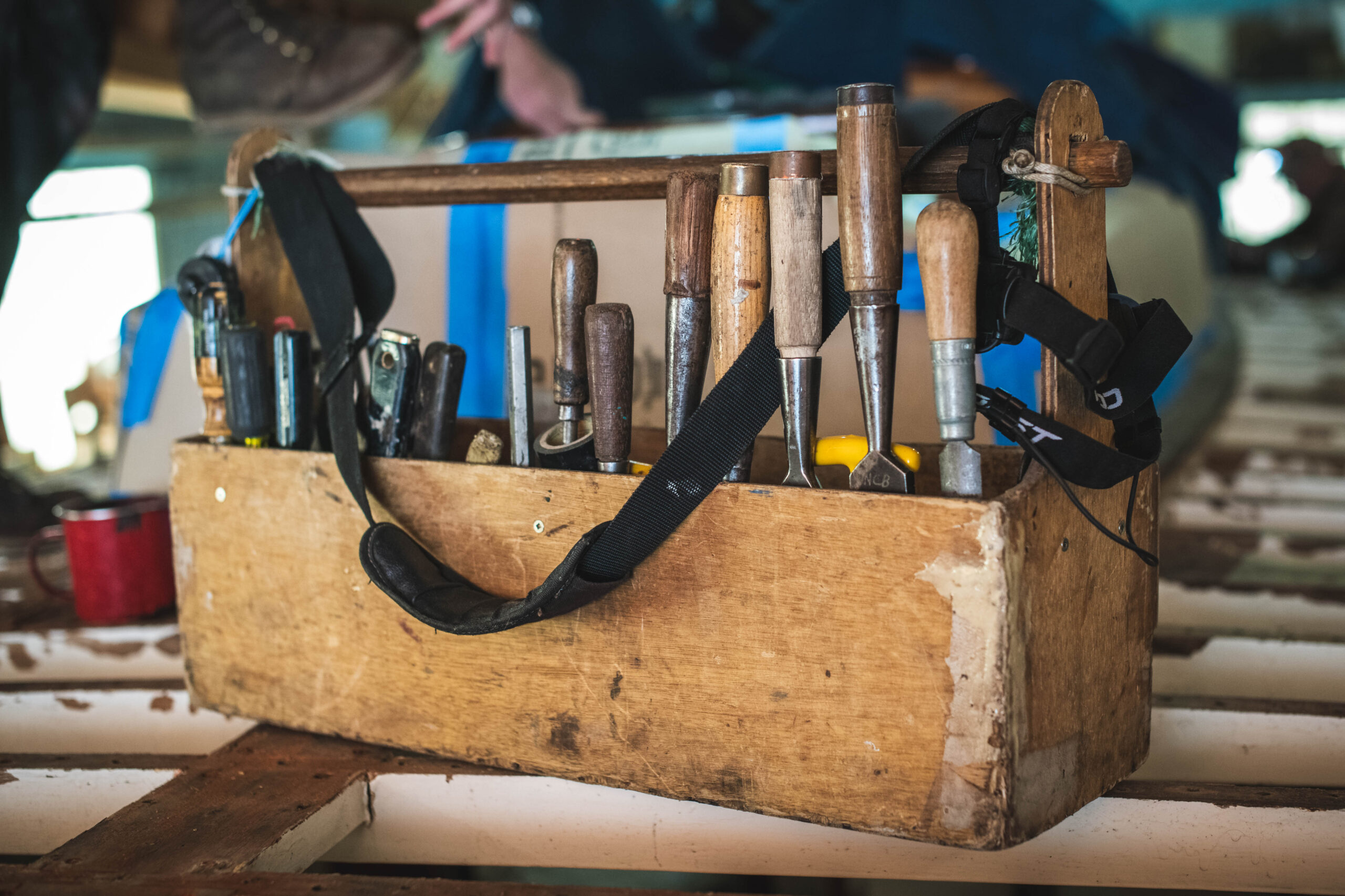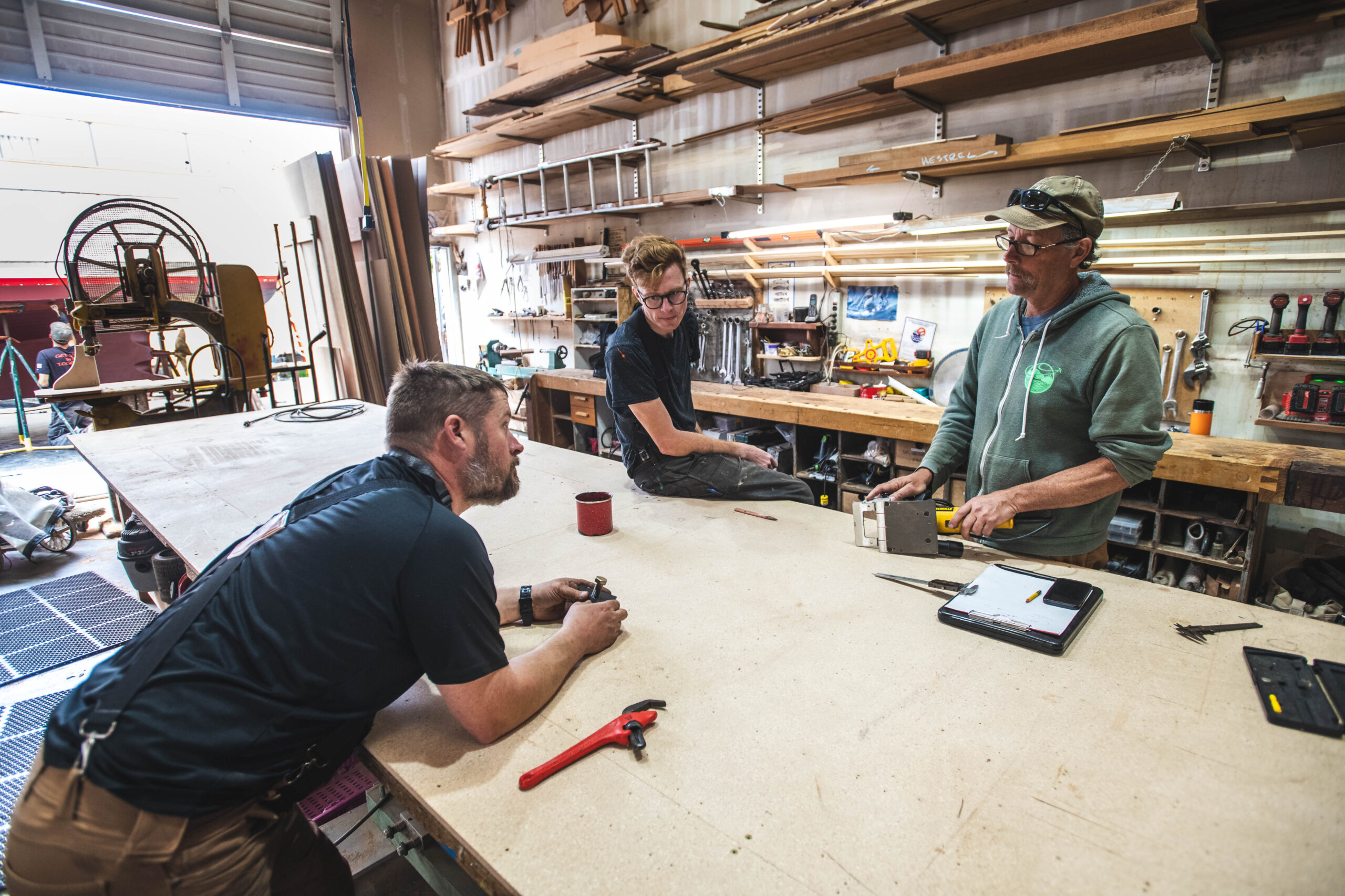Photography by E.J. Harris. Story by Carson Meacham.
In Anacortes—a town with a history deeply tied to the sea—the working waterfront serves as a living museum of maritime tradition. But today, few businesses still build and maintain wooden boats. Andy Stewart, the owner of Emerald Marine Carpentry, is one of the last, preserving a piece of that heritage and ensuring it remains for future generations.
Wooden boatbuilding is a trade reliant on decades of experience. The field, however, is facing a “silver tsunami” as craftspeople age and retire, taking their invaluable skills with them. In many cases, the story ends here: a retirement sale, the tools auctioned off, a lifetime of knowledge dispersed and lost.
Andy plans to be an exception to that trend. He is passing Emerald Marine Carpentry to Nicholas Brown, a younger shipwright, to ensure that the traditions, skills, and tools that he built over the last 30 years will carry on. As Nicholas sees it, this isn’t just a business deal. “As someone coming into it, it’s a pretty impressive responsibility, and it’s frankly somewhat of an honor,” he said.
Andy, like many professional shipwrights, began his career as an apprentice. He started at the “Rights of Man” boatyard in Shelton in 1984. By 1992, Andy had co-founded his own business in Olympia, working to maintain sailboats for the Evergreen State College and a variety of other vessels. In 1997, he moved to Anacortes, working as a carpenter for a diesel engine repair company, before starting Emerald Marine Carpentry in 1999.
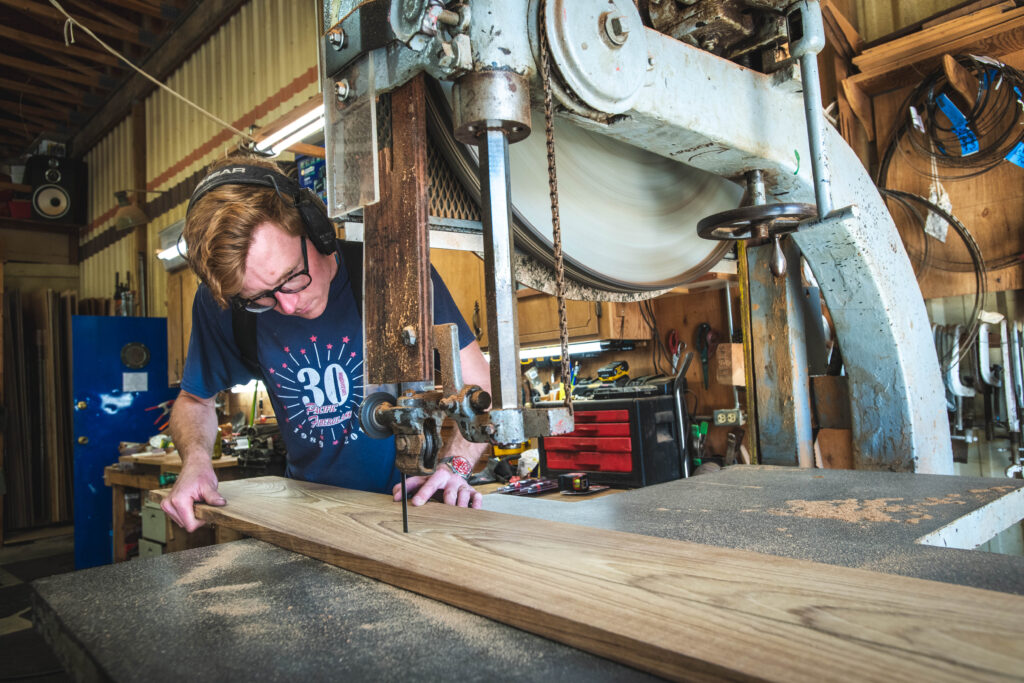
Today, Emerald Marine Carpentry specializes in the full-service repair and restoration of wooden boats. They work from bow to stern to maintain vessels of all types and sizes. Their specialized skill and experience in hull maintenance, propulsion and steering, fine woodworking, and even new construction make them a straightforward choice for many customers.
Emerald Marine’s new owner Nicholas grew up in Virginia and spent time visiting his grandparents in Maine. Between the two maritime states, Nicholas sailed on traditional boats and grew to love the maintenance they require in his youth. When it came time to pick a career, he “walked into boatyards until somebody hired me.” During that time, he recalled, he “started bothering—I think bothering is the right word—John Thomas, down in Seattle.”
John hired Nicholas to his crew at the 30+ year-old “Thomas Boat Company” in Seattle’s Ballard neighborhood. Nicholas first started as a shop helper who would sweep and take on odd jobs, then as an apprentice. Nicholas learned wooden boatbuilding and repair on Lake Union, where “you could drop a drill bit straight through the floor and into the lake.”
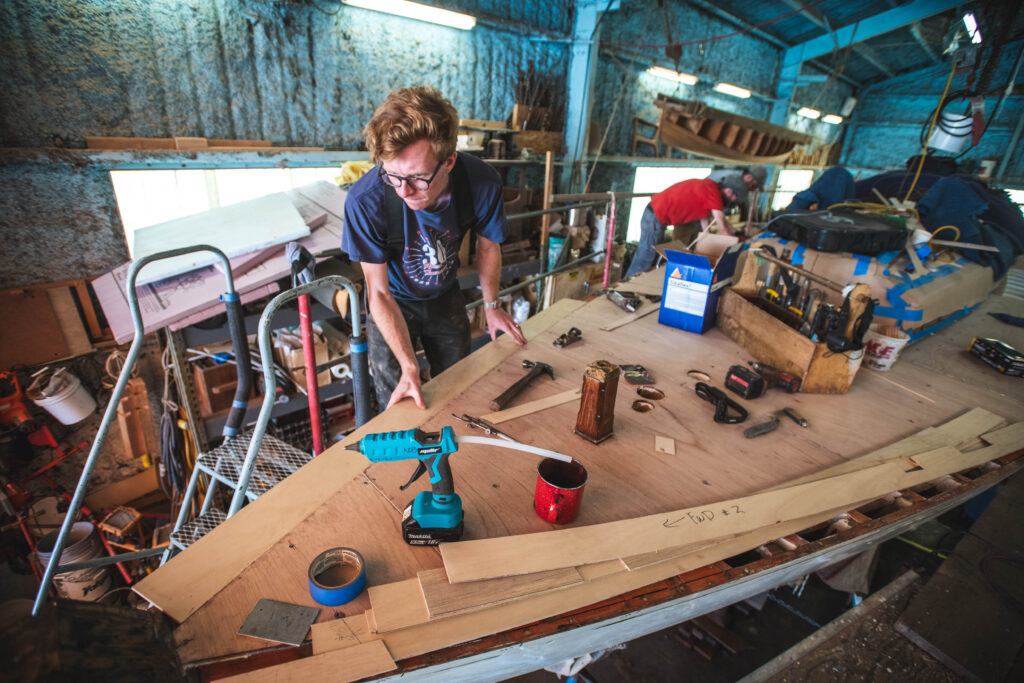
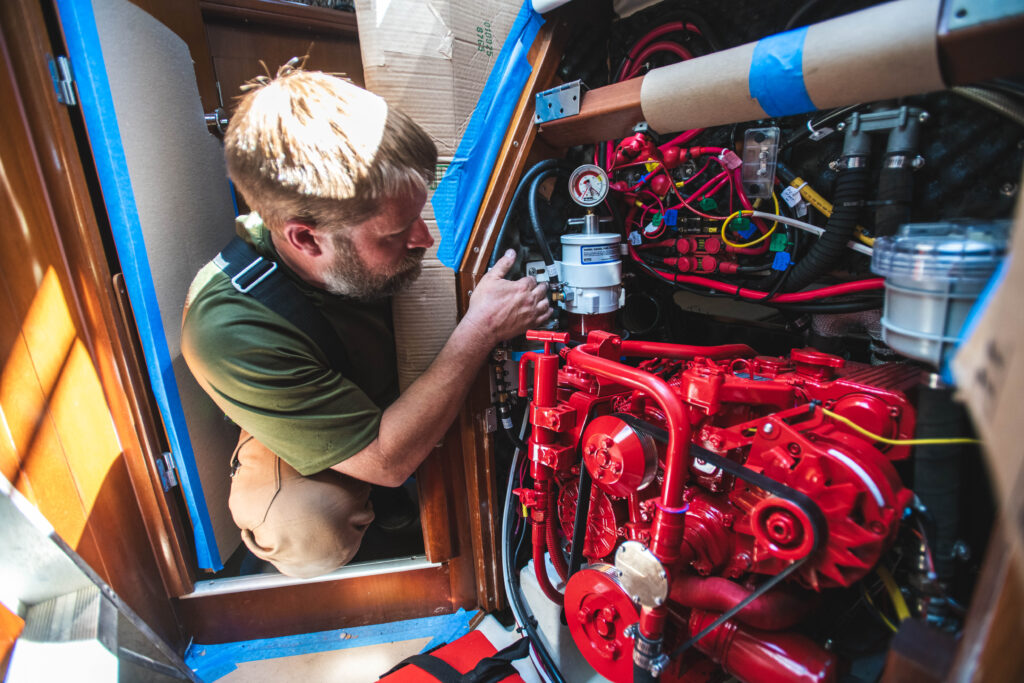
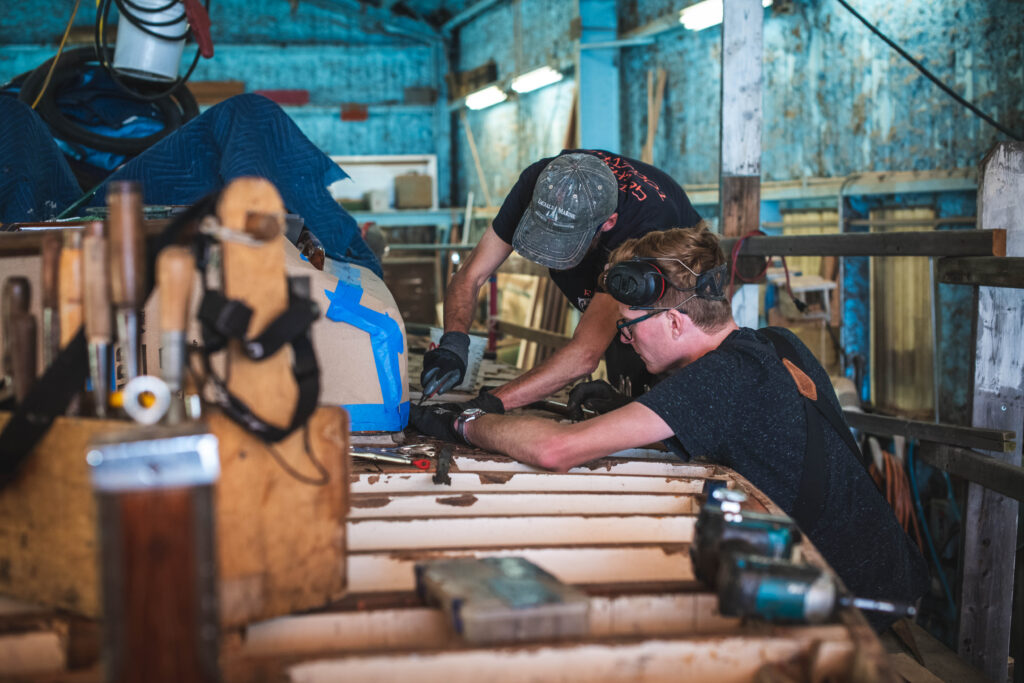
That experience on Lake Union solidified his passion, but it was the rich history of the Pacific Northwest’s Maritime culture—what he describes as a “continuum” of the trade—that kept Nicholas in the area long-term.
Unlike many other regions where the boatbuilding trade has become isolated or lost entirely, the Pacific Northwest has a deep-rooted legacy that lives on. The region industrialized wooden boatbuilding before, during, and after World War II, which created a long-lasting culture for the construction and repair of wooden vessels.
At Emerald Marine Carpentry, this “continuum” is more than just an idea. Some historical tools have been passed down from one shipwright to another since before WWII. A massive “ship saw” used to cut down huge timber, and “horsing irons” for sealing hull gaps date back to the early 1900s, representing the long history of the trade.
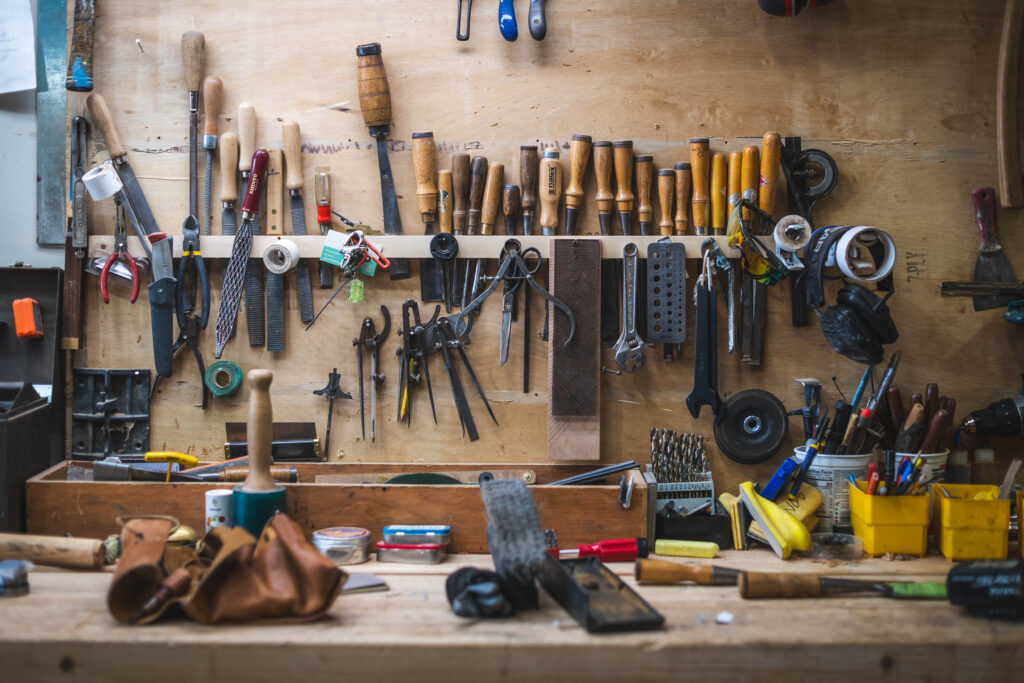
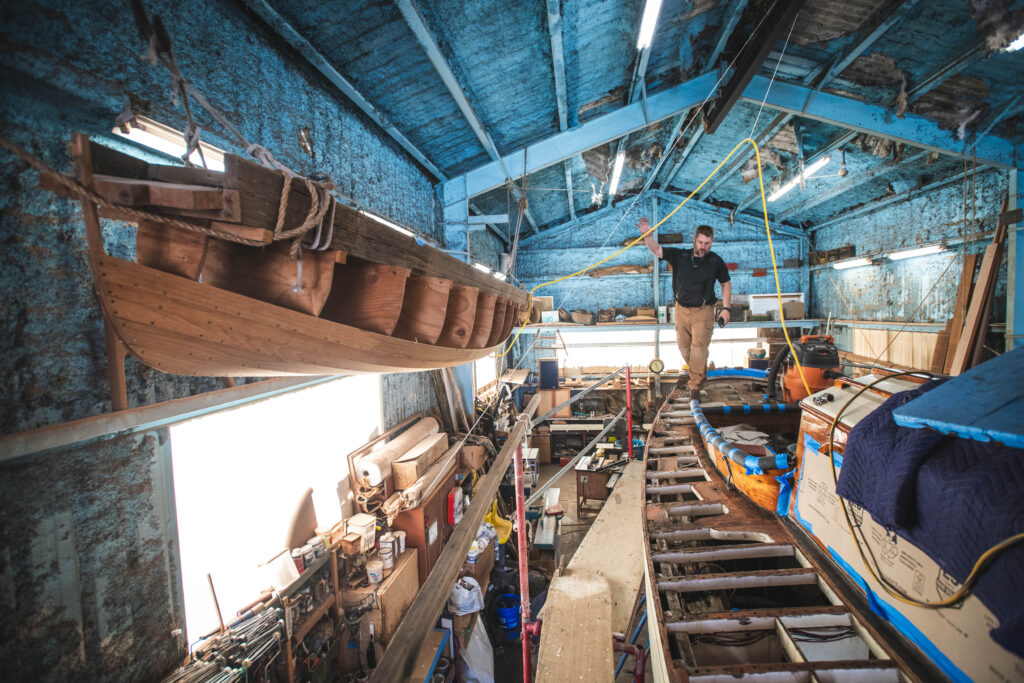
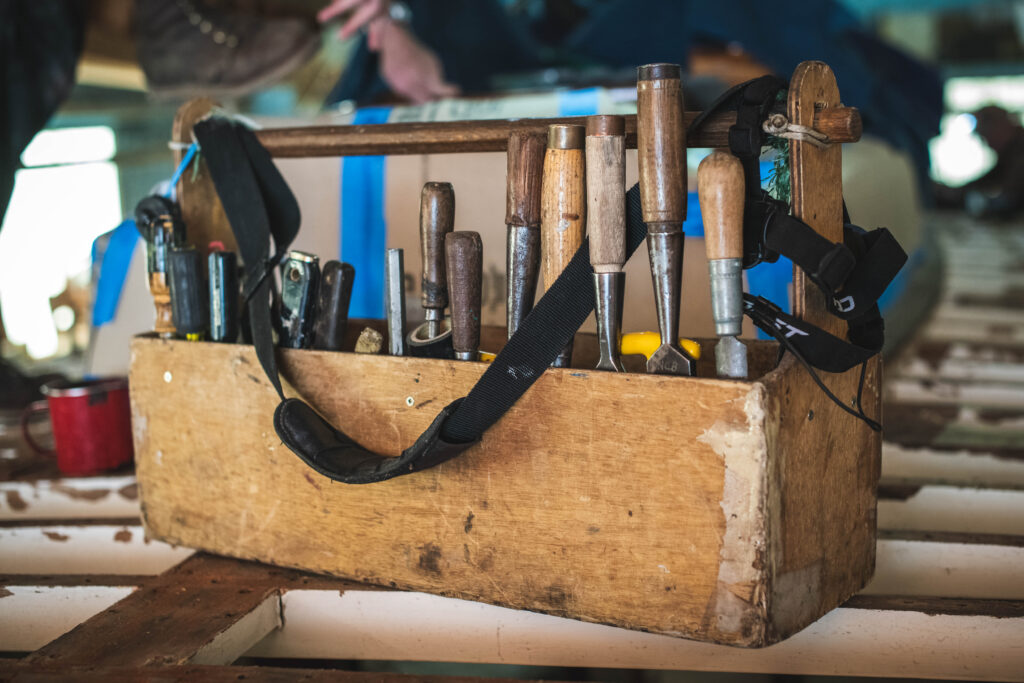
“A lot of small boat shops wind up with the founder coming close to retirement and trying to sell it. Then, when you look [for] the books…you don’t look at the chart of accounts, because it doesn’t exist, and the client list—if it exists—is a Rolodex.” Nicholas explained that in those situations, “there isn’t really a business there. There’s a pile of band saws in a dilapidated building.” With Emerald Marine, that’s different.
Along with the tools Andy inherited from a variety of now-closed shipwright businesses came a portfolio of Emerald Marine Carpentry contacts and customers. Emerald has a built a good name for itself over the years through authentic relationships and a reputation for good work.
Maintaining that reputation is fundamental to passing on the business. Andy has taken care to introduce Nicholas to his current customers and ensure a continuity of relationships. Andy and Nicholas mentioned the example of a customer named Earl, who Andy had worked with over the last 15 years. Andy introduced Earl to Nicholas, and together they discussed an ongoing project and ideas for the maritime community in Anacortes. “It’s just the literal handoff. In our world, it makes a lot of difference,” said Andy.
The whole crew at Emerald Marine has had a say on the transition in ownership. “It wasn’t a ‘Hey, I’m selling it to Nicholas. See you guys,’” said Nicholas. “It was an ongoing dialogue with a lot of the crew, who all got to have opinions.” Nearly the entire crew chose to stay through the transition.
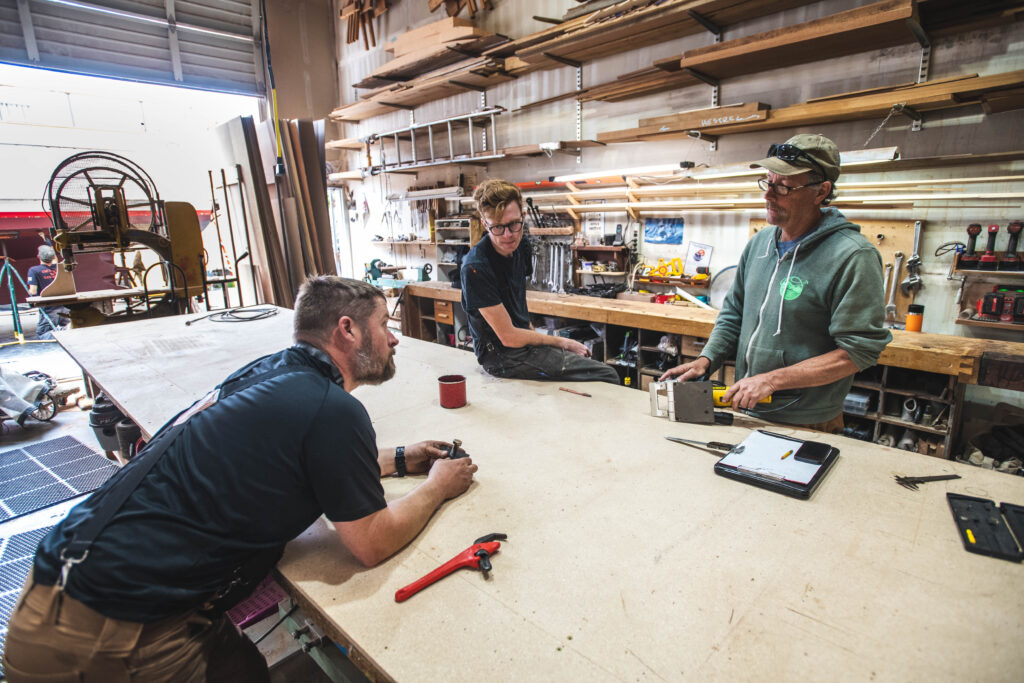
In the coming years Andy will still be involved from time to time, but he’s excited to spend more time working on his own projects, like his home on nearby Guemes Island. Nicholas noted that Andy will still be around to “double check that I’m not doing really stupid things, and to look over bids and just be like, ‘Here’s how I would do it.’”
In a world where trades are being lost to time, the transfer of Emerald Marine Carpentry is a story of preservation—not just of physical structures, but of a maritime way of life and the continuum of a trade.
This project was made possible thanks to generous funding from the State of Washington Tourism’s Rural Tourism Marketing and Production Grant Program.


